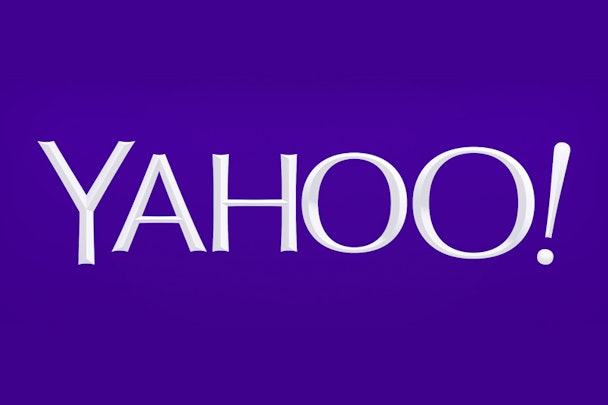Yahoo to focus on fewer ad products to help save its business
Yahoo is streamlining its advertising offering to focus on fewer but more popular ad products in what could be the last throw of the dice in its attempt to keep pace with Google and Facebook.

The beleaguered media business outlined a flurry of strategic changes yesterday evening (2 February) in an attempt to ease investor concerns after it announced a $4.4bn loss in 2015. It summed up another mediocre year for Yahoo, which chief executive Marissa Mayer admitted had become too dependent on banner ads and desktop users, both of which are in decline.
With that in mind, advertising at Yahoo is being more tightly woven around the biggest trends of the moment – mobile, video, native and social – underpinned by its burgeoning programmatic offering through the Gemini platform. In order to sell these products on the scale needed, the business has had to streamline its sales support and operations team in a move that means it will no longer provide local products for most of Europe and Latin America and instead focus on the US, Canada, the UK, Germany, Hong Kong and Taiwan.
Mayer expects the plan to push Yahoo’s so-called Mavens business, which houses its mobile, video, native and social products, to at least $1.8bn in 2016, around 12 per cent growth this year but still way behind the momentum across the wider digital market. Mayer said the reason for the “drag” was due to some older ad formats in its programmatic stack putting pressure on its price per ad in the near term.
As more premium ad spend moves to programmatic, some of that spend is going on older ad formats, which in turn stunts growth because they're sold at a lower price, explained Mayer on the earnings call. “That said, once that stabilises, we do think we'll start to see price appreciation in programmatic selling of older style ad formats.”
She continued: “Advertisers are increasingly embracing programmatic technology for its optimal performance, pricing and control. In line with this trend, our global sales team has been training and scaling form traditional premium focused sales to performance and programmatic offerings.”
Mayer also took time to explain the company’s evolving approach to mobile in light of the difficulty it’s had monetising the 575 million users who visit its mobile properties each month. Mobile may be the largest contributor to Yahoo’s ad business, adding over $1bn or nearly a quarter of its traffic-driven revenue but it still trails Facebook, which made roughly $4.5bn in revenue from mobile ads in its latest quarter – roughly 15 times what Yahoo made in the same period.
To close the gap, Yahoo is ramping up efforts to convince developers to create products for its services as well as deepen revenues from mobile search and its network of apps.
Eventually, the media owner wants to see search evolve into a more app-orientated format where – either from within the Flurry development kit or its standalone arpplications – it’s able to create rich-app and more premium ad experiences for search. Such a move could leave it well placed for the proliferation of personal assistances that many technology platforms are braced for in the coming years.
Mayer explained how this move could pan out: "If you were looking to find somewhere in downtown San Francisco and it's 6pm on a Saturday, it's useful to be able to say, OK, use Yelp or use OpenTable to actually book a reservation and being able to know what applications you have on your phone, deep link to them and really provide a great guidance.
“This is really where Yahoo's mission around being the guide comes into play. It's something that's quite different and it will monetise differently. The user interaction will be different, and we really think that mobile search needs a much deeper re-imagination.”
The changes see Yahoo double down on its ad business to kickstart growth, which has remained flat since Mayer took the reins of the business in 2012.
That failure to capitalise on a market undergoing rapid growth has put the company under pressure from activist investors who want Yahoo to sell off its main business in order to cut costs so that it can take on Google.
Yahoo said in its earnings results yesterday that it would explore “strategic alternatives” for the internet arm of its business alongside its preferred plan for a spin-off. It’s why the business opted to axe 15 per cent of its workforce instead to give it time to consider the best option, which could also see it hive off its 15 per cent lucrative stake in the Alibaba Chinese marketplace.

